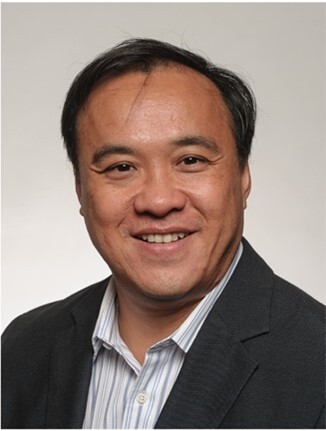
The Department of Pharmacology and Toxicology is pleased to welcome Dr. Wai Haung (Ho) Yu as an Associate Professor, effective October 1, 2024.
Dr. Yu is no stranger to the Department, having completed his PhD in the Department of Pharmacology and Toxicology in 2001. Prior to starting here as an Associate Professor, Dr. Yu held a Status Only appointment and was immersed in teaching and mentoring of graduate students. Dr. Yu also previously worked as a Scientist within the Campbell Family Mental Research Institute, focusing on neurodegenerative diseases such as Alzheimer’s disease (AD). To get to know Dr. Yu better we asked him the following questions:
What inspired you to pursue this career?
The desire to learn and share knowledge. The human brain and all its facets are still uncharted territory. The ability to understand how the brain functions, all its connections and what happens in neurodegenerative disease is exciting and part of what inspires my ever continuing desire to learn! In addition, my research offers new insights on how diversity of people can change one’s risk of diseases like Alzheimer’s disease and how diagnoses and treatments may also vary. Sharing the knowledge I have gained with others through classes or in the community are an essential part of what I do and a very rewarding aspect of my career.
What opportunities excite you most in your field?
In the field of Alzheimer’s disease (AD), we are seeing a convergence of ideas and extensive collaborations to tackle this devastating illness. It has been exciting to seeing how new technology is revealing much more about how AD develops and spreads in the brain. These key events are also leading us to strategize the better course for care and treatment. Along the way, and as part of my research, is understanding how genetic and lived experience risk factors can impact brain function and its network of brain regions, developing diagnostics to identify vulnerable people, across diverse populations and helping to develop treatments that will one day help to remove the “garbage” that builds up in brain cells in AD.
Hopefully in my lifetime, we will have effective treatments that are designed for the individual, their risk factors, and improved quality of life.
What impact do you hope to make?
A big part of my research focuses on risk factors of AD across the globe. While my preclinical research focuses on lived experience risk factors that contribute to Alzheimer’s disease like sleep and cardiovascular impairment, I am also deeply involved in clinical research in Asian populations, and working with other groups who are looking at other under-represented groups in medicine and research to provide equity and a global perspective on disease. This contribution is essential when dealing with a worldwide epidemic and the contributions I make hopefully will add to these efforts and help develop better diagnostic and treatment regimens.
Do you have any extracurricular interests?
Travel, hiking/biking, museums, art collecting.
How would you describe your teaching philosophy and approach?
Science evolves with evidence, and it is critical to share this knowledge. It is also important that as scientists, we are also constantly learning. What I know now about the brain, toxicology and pharmacology is exponentially more than when I was a student in the Department of Pharmacology and Toxicology. With this perspective, I view teaching as also an evolution of my own knowledge. Learning new science, absorbing what is being asked, helping address these questions and unknowns as a constant refinement to help share knowledge. I also believe that teaching is not only in a classroom or laboratory, but also in the community. Taking what we know about healthy brain aging and disease to other audiences helps enrich lives, giving them knew perspectives and answering their questions as a way to improve lives.
